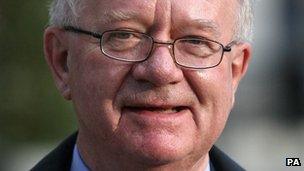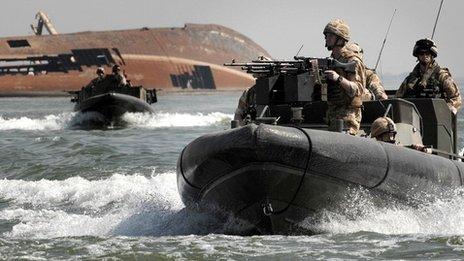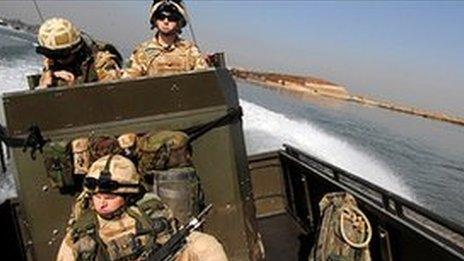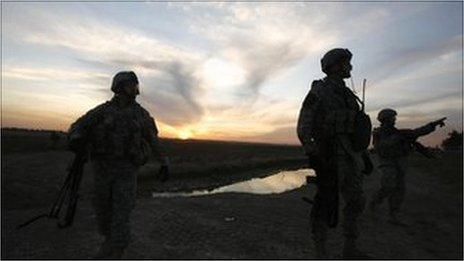Chilcot inquiry Iraq war report delayed to 2013
- Published

The inquiry, led by Sir John Chilcot, has been running for nearly three years
A report into the UK's involvement in the Iraq war and its aftermath will not be published this year as had been planned, the inquiry team has said.
Sir John Chilcot said he would not report before the middle of 2013 at the earliest - a decade after the war.
He said the report would be about a million words long, about twice the size of literary epic War and Peace.
Discussions with officials over whether secret documents could be published in the report were continuing, he added.
Last November, the inquiry said it needed extra time to "do justice to the issue involved" and the earliest its conclusions would be handed to the prime minister was this summer.
But it has now announced a further delay, which is likely to result in the report not being completed until the end of next year.
In its first update on its work for seven months, the inquiry said it had made "extensive progress" in drafting its report, but the inquiry was "unprecedented" in scope and the issues were "complex".
The details came in a letter to Prime Minister David Cameron, released by the inquiry, from its chairman Sir John.
'Dialogue on documents'
On the crucial issue of whether previously secret documents could be included in the final report, Sir John said he hoped to begin a "dialogue" with the Cabinet Office later this year about the release of further declassified material.
He said "significant progress" had been made in getting clearance to disclose important material, but more needed to be done.
"There are a number of particularly important categories of evidence, including the treatment of discussions in Cabinet and Cabinet committees and the UK position in discussions between the prime minister and the heads of state or government of other nations to be addressed," he said.
The BBC's security correspondent Gordon Corera said there had been an ongoing row between the inquiry and the Cabinet Office over certain documents - particularly notes sent by former prime minister Tony Blair to President Bush and records of their discussions in the run-up to the conflict.
At one hearing in early 2010, inquiry chairman Sir John expressed his frustration about his committee's inability to publish certain classified documents relating to Iraq policy.
Although the committee could see these documents, their public release had not been sanctioned by officials - a move also criticised at the time by Lord Goldsmith, attorney general in the run-up to war.
'Partial picture'
Before publication of a final report, letters need to be written to those who have participated, detailing what is being said about them, including any criticism of their conduct.
This process, which will take several months, is now thought unlikely to start before the middle of 2013.
Sir John said he was determined the inquiry's report would be "balanced, fair and accurate" but warned the evidence - both oral and written - received by the inquiry was "not wholly consistent".
"That is largely explained by the fact that most of those involved had only a partial picture of events and their levels of understanding varied significantly," he said. "There are also gaps in the documentary record and lapses of memory so many years after the event."
Efforts to establish a full picture of the context in which decisions were reached by ministers and officials was "time consuming and challenging", he added.
Hearings
The inquiry held 18 months of public hearings between the end of 2009 and early 2011.
It examined the background to the war, the conduct of military operations, post-war planning and the UK's role in post-war security and governance until British troops left in 2009.
Those giving evidence included Mr Blair and his successor Gordon Brown, senior Cabinet ministers during their governments, military commanders and diplomats.
The inquiry also met the families of some of the one hundred and seventy-nine British troops who were killed in Iraq between 2003 and 2009.
According to the US Department of Defense, 4,487 US military personnel were killed in Iraq between March 2003 and July 2010. The organisation Iraq Body Count says between 97,461 and 106,348 Iraqi citizens were killed over the same period.
- Published5 July 2016

- Published16 November 2011

- Published14 December 2011
